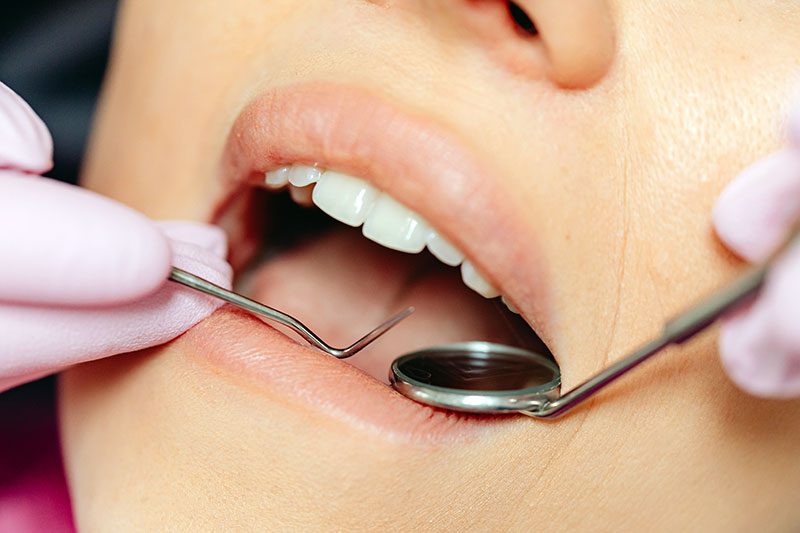I brush my teeth twice a day and keep them clean. Do I still need a scale and polish at the dentist?
Yes! Getting your teeth checked and cleaned by a dentist is an important part of your oral hygiene routine. Learn more about dental scaling and polishing and why it is necessary:
What to expect from the procedure?
Dental scaling involves careful removal of plaque and tartar from the surface of your teeth above and just below the gumline. An ultrasonic scaler is used to get rid of the tartar between your teeth and gums. It is an instrument which has a vibrating metal tip combined with water spray for cooling effect. The vibration from the instrument will cause tartar to chip away without harming the teeth.
Your dentist may also use handheld instruments to further scrape away any remaining tartar as necessary. These instruments can access areas where your toothbrush cannot reach.


After dental scaling, your dentist will then proceed with teeth polishing using a handpiece with a soft rubber cup. A polishing paste is used to smoothen away any rough areas on the teeth to protect against further plaque build-up. Polishing may also help to remove stains keeping your teeth bright and clean.
To finish off the scaling and polishing session, your dentist will apply some concentrated fluoride gel onto your teeth as required. Fluoride helps to strengthen your teeth and make them more resistant to tooth decay as well as reducing teeth sensitivity.
Why do you need a scale and polish?
It is normal to experience some form of plaque build-up over time. Therefore, it is important that regular brushing is complemented by a more thorough dental scaling and polishing. If plaque and tartar remain on teeth for a long period of time, it can cause gum disease and if left untreated, gum disease can become severe and lead to:
- Bleeding and puffy gums
- Loose teeth
- Bone loss
- Tooth loss


Through scaling and polishing, your dentist will also be able to examine your teeth better to detect any potential problems such as tooth decay or defective fillings.
Is scaling and polishing painful?
Scaling and polishing usually causes little to no pain, though some discomfort or sensitivity may be felt during the procedure especially if your gums are inflamed or have sensitive teeth.
If necessary, your dentist may offer topical or local anaesthetic to numb your gum and teeth thus making the procedure more comfortable.
How often should I get a scale and polish?
As a general guideline, most people should have their teeth professionally cleaned twice a year. Having said that, your dentist will advise on the frequency of a scale and polish depending on your oral health.

 Book an Appointment
Book an Appointment


